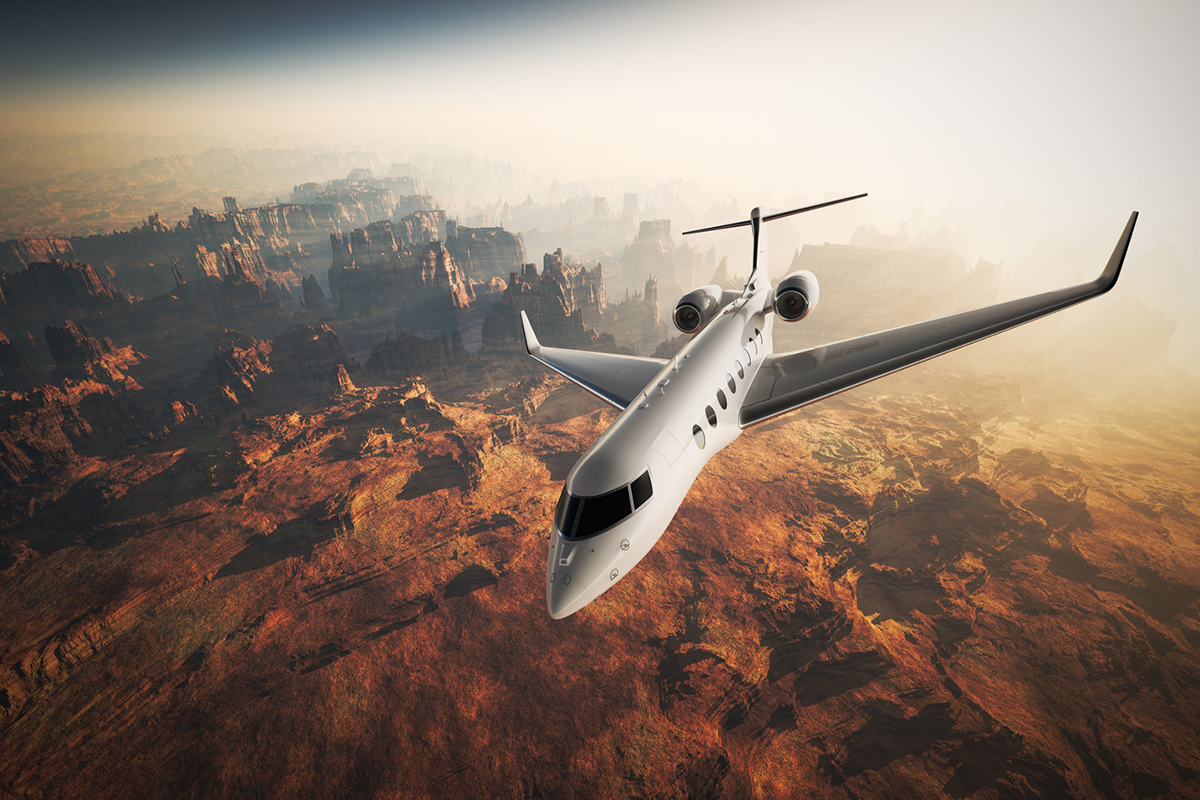How private jet company SHY Aviation is on track to turning over £22 million in one year
When Giles Vickers-Jones co-founded the private jet business SHY Aviation in 2011, little was he aware it would be on track to turning over an annual income of £22 million in 2020.
A favourite for the high-fliers of society including top business leaders, Hollywood directors and celebrities, SHY Aviation, which was co-founded by Scott Sullivan, has soared since its inception – although not without its challenges.
"Our biggest challenge previously had been our rapid expansion," Giles tells The CEO Magazine. "After starting SHY from the ground up and focusing on sales, several years in we were expanding quickly."
Opening multiple offices and rapidly increasing revenue made for an exciting time for SHY Aviation. However, this swift growth presented challenges in managing optimal internal infrastructure.
"Our leadership team was not growing at the same rate as the rest of the company," Giles explains. "We made some key management hires and brought sectors such as finance back in house to regain control.
"I was able to turn things around by hiring carefully and astutely. Our senior team grew and the business flourished.


"With total income over £22 million forecast for this year and over £37 million projected for 2022, things have really taken off."
While the economy is being rattled by the coronavirus pandemic, which is also disrupting the global travel industry, SHY Aviation is one of the few companies able to thrive during the COVID-19 uncertainty.
"With the recent coronavirus and other recurring factors like security, practicality and time efficiency, private jet bookings are naturally increasing," Giles says. "We’re the people who find solutions to travel problems."
A popular choice of travel for executives, entrepreneurs and families worldwide, there is arguably no better time to travel in the luxurious comfort of a private jet than now.
With access to more than 50,000 aircraft including Citation Mustang, Nextant XTi, Learjet 45, Hawker 900XP, Gulfstream IV and Global Express, the travel opportunities are myriad – whether you’re off for a weekend away to a tropical island or have to jet away for a day’s work.
"We have learned that sometimes the real value is in making the impossible happen and ensuring our clients are able to implement their travel plans irrespective of the challenges," Giles says. "SHY differs from its competitors in that we want to provide a great service to our clients, whether it’s a straightforward engagement or something more difficult."
The talented team of brokers can ensure any itinerary comes true any hour of the day.
The company doesn’t just provide a comfortable, efficient and opulent way to travel; it is a greener, guilt-free option compared to commercial carriers.
Last year alone, more than 100,000 flights were made every day adding to the worsening global climate crisis.
While 54 billion kilometers were flown globally in 2019 by all aircrafts, air travel accounts for 2% of total greenhouse gas emissions every year – an outstanding figure up more than 300% since 1990.
Of that exponential figure, only a fraction is contributed by private aviation.
"Even so, we feel it’s our duty to look after the planet and ensure you know that we take this responsibility seriously," the co-founder says.
A focus on carbon neutral aviation is something SHY Aviation holds close to its heart. In 2019, the company obtained an internationally acclaimed PAS 2060 certification, which requires following stringent measurements and an achievable plan for internal reductions.
Through offsetting and validating carbon emissions, SHY Aviation is committed to achieving net zero carbon emissions in 2020.
"When my co-founder Scott and I started SHY, I was about to become a father for the first time," Giles tells The CEO Magazine. "This instilled in me a sense of responsibility from the outset and sustainability is important to both me and my family’s future, and to my clients and their families.
"Flying is one of the most carbon-intensive activities a person will carry out, and as a private aviation firm we have to directly confront the environmental impact of our flights.
"Private aviation should be making strides to be part of the solution rather than the problem."